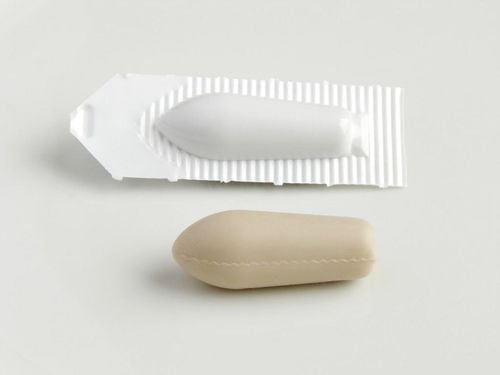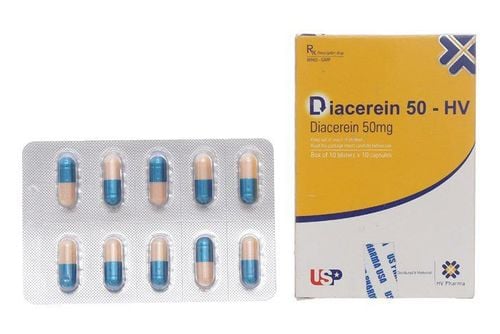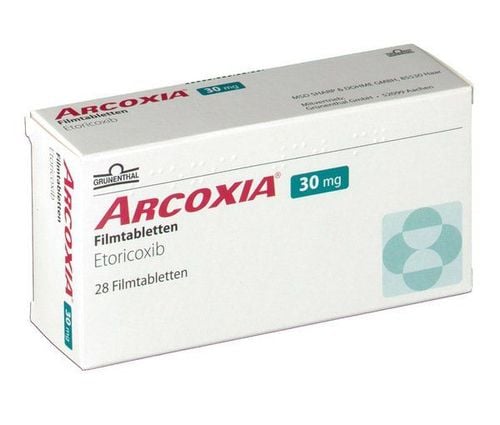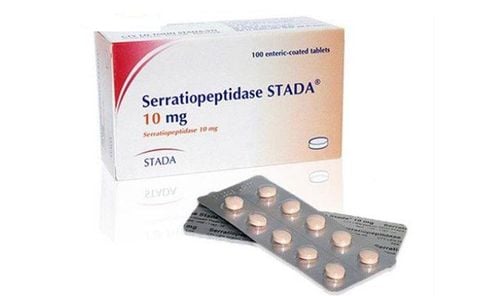Aceclofenac is commonly used in the treatment of osteoarthritis, ankylosing spondylitis, and rheumatoid arthritis. The medication is taken orally during or after meals with an adequate amount of water.
1. What is Aceclofenac?
Aceclofenac contains 100mg of the active ingredient Aceclofenac and belongs to the group of non-steroidal anti-inflammatory drugs (NSAIDs).
Aceclofenac works by inhibiting the production of prostaglandins, substances released at injury sites, tissue damage, and immune responses. Prostaglandins play an important role in the body's inflammatory response and bone resorption.
Aceclofenac 100mg is indicated for pain relief and anti-inflammatory treatment in the following cases:
- Osteoarthritis
- Rheumatoid arthritis
- Ankylosing spondylitis
Do not use Aceclofenac 100mg in the following cases:
- People allergic to Aceclofenac or any of its components.
- Individuals with active or suspected gastrointestinal ulcers or bleeding.
- Patients with moderate to severe kidney impairment.
2. Dosage and Administration of Aceclofenac 100mg
Aceclofenac 100mg is taken orally. Swallow the tablet whole with a sufficient amount of water. It is best to take it during or after meals.
The recommended dose of Aceclofenac for adults is 200mg (2 tablets) per day, divided into 2 doses of 100mg: one tablet in the morning and one in the evening.
There is no clinical data on the use of Aceclofenac in children; therefore, it is not recommended for use in children under 18 years old.
The dose of Aceclofenac should be reduced for patients with liver impairment, with a recommended starting dose of 100mg per day.
3. Side Effects of Aceclofenac 100mg
Common side effects of Aceclofenac include:
- Dizziness
- Indigestion, stomach pain, nausea, diarrhea
- Elevated liver enzymes
- Less common side effects of Aceclofenac include:
- Bloating, gastritis, constipation, vomiting, mouth ulcers
- Itching, rash, dermatitis, hives
- Increased blood urea and serum creatinine
Rare side effects of Aceclofenac include:
- Anemia
- Anaphylactic reactions (including shock), hypersensitivity
- Visual disturbances
- Difficulty breathing
- Black stools
- Facial swelling
4. Interactions of Aceclofenac with Other Drugs
Aceclofenac can interact with the following medications when used concurrently:
- Avoid concurrent use with other NSAIDs as it can increase the risk of side effects.
- Antihypertensive medications: Aceclofenac reduces the effectiveness of antihypertensive drugs.
- Diuretics, Cyclosporine, Tacrolimus: Increases the risk of kidney toxicity.
- Cardiac glycosides: Aceclofenac can increase plasma levels of glycosides, worsen heart failure, and reduce glomerular filtration rate.
- Lithium: Reduces lithium excretion.
- Methotrexate: Caution should be exercised when using Aceclofenac and Methotrexate within 24 hours, as Aceclofenac can increase plasma methotrexate levels, leading to toxicity.
- Mifepristone: Aceclofenac should not be used within 8-12 days after taking Mifepristone, as it can reduce the effectiveness of Mifepristone.
- Corticosteroids: Concurrent use increases the risk of gastrointestinal ulcers or bleeding.
- Anticoagulants: Aceclofenac may enhance the effects of anticoagulants.
- Quinolone antibiotics: Increases the risk of seizures when used with Quinolone antibiotics.
- Antiplatelet agents and selective serotonin reuptake inhibitors (SSRIs), when used with Aceclofenac, increase the risk of gastrointestinal bleeding.
- Using Zidovudine together with Aceclofenac increases the risk of hematological toxicity.
- Diabetes medications: Consider adjusting the dose of blood sugar-lowering medications when using Aceclofenac.
Aceclofenac is indicated for pain relief and anti-inflammatory treatment in cases of osteoarthritis, rheumatoid arthritis, and ankylosing spondylitis. As the medication may cause side effects, it should be used under the guidance of a healthcare professional.
To arrange an appointment, please call HOTLINE or make your reservation directly HERE. You may also download the MyVinmec app to schedule appointments faster and manage your reservations more conveniently.













